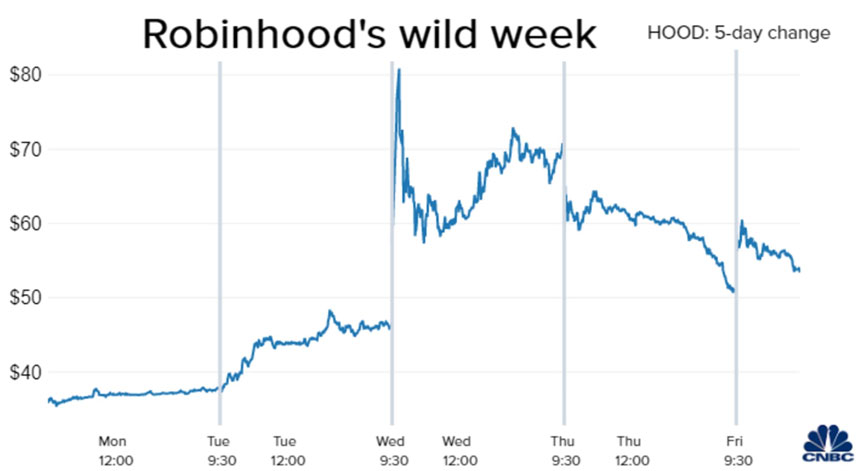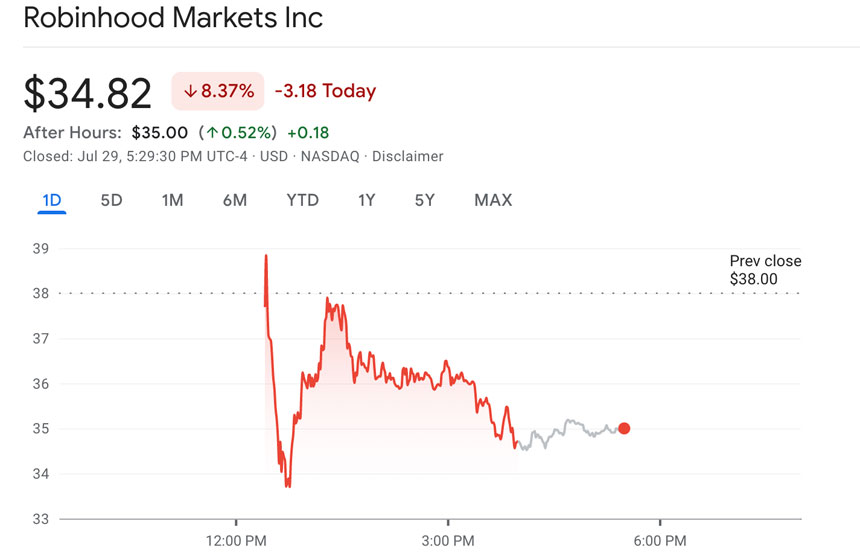In recent years, the world of investing has undergone a dramatic transformation. Traditional brokerage firms have been challenged by a new player that has revolutionized the way people invest. This disruptive force is none other than Robinhood, an online brokerage platform that offers commission-free stock trading.
With its user-friendly interface and accessibility, Robinhood has attracted millions of investors seeking to make their mark in the market without breaking the bank.
Introduction to Robinhood and its Impact on Investing
Robinhood, launched in 2013, aimed to democratize finance by breaking down barriers that hindered individuals from participating in the stock market. With no trading fees and a user-friendly interface, it made buying and selling stocks easy for anyone with a smartphone and an internet connection.
This accessibility has attracted younger generations eager to explore investing. Additionally, Robinhood’s success has inspired other brokerages to offer commission-free trades, benefiting investors by driving down costs across the industry. Overall, Robinhood’s impact on investing is significant, making it more accessible and affordable for all.
The Concept of Free Stock Trading and Its Appeal to Investors
The concept of free stock trading has revolutionized the investment industry, with platforms like Robinhood leading the way. Traditionally, investors were burdened by significant fees every time they executed a trade, eating into their profits over time. However, Robinhood’s commitment to commission-free trading has changed the game.
By eliminating these additional costs, Robinhood has made investing more accessible and appealing to a wide range of individuals. Seasoned investors can now execute trades without worrying about hefty fees eroding their returns.
This newfound freedom allows them to experiment with different strategies and take advantage of market opportunities without financial constraints.
Moreover, novice investors benefit greatly from the concept of free stock trading. They can dip their toes into the investment world without fear of incurring significant expenses. With the ability to invest smaller amounts without being burdened by fees, beginners can gradually build their confidence and learn valuable lessons along the way.
The appeal of free stock trading extends beyond financial considerations. It fosters inclusivity within the investment community, breaking down barriers for those who felt excluded due to limited resources or financial constraints.
By removing commission fees, Robinhood has empowered individuals from diverse backgrounds to participate in the stock market and potentially grow their wealth.
Understanding the Criteria for Selecting the Best Stocks
When selecting stocks, it’s important to consider several criteria. Start by assessing a company’s financial health, looking for positive revenue growth, healthy profit margins, and manageable debt levels. Next, analyze industry trends to identify sectors with promising futures.
Diversify your portfolio by considering both large-cap and small-cap stocks for stability and growth potential. Take into account analyst ratings to gauge market sentiment towards specific stocks. Lastly, evaluate a company’s fundamentals, including its competitive advantage and management team expertise.
By considering these criteria, investors can make more informed decisions and increase their chances of success in the stock market.
Identifying High-Growth Companies with Promising Futures
Investors should expand their search beyond popular stocks like Apple and Amazon to uncover hidden gems with significant growth potential. Look for companies in industries experiencing rapid changes, such as renewable energy or biotechnology. Thorough research is crucial, considering financial performance, innovation, and management capabilities.
Diversify your portfolio to capture growth opportunities from various sectors. By identifying high-growth companies, investors can position themselves for long-term success in a dynamic market.
Highlighting Undervalued Stocks Overlooked by Traditional Investors
Traditional investors tend to gravitate towards well-established companies, often ignoring smaller or undervalued stocks. However, these overlooked gems present opportunities for savvy investors willing to do their due diligence. Look for undervalued stocks with solid fundamentals like low price-to-earnings ratios or attractive dividend yields.
Recognizing the potential of these hidden gems before the broader market catches on can lead to significant price appreciation and long-term growth. Thorough research and analysis are key in identifying these undervalued stocks, but remember that investing in them carries its own set of risks.
| Key Points |
|---|
| Traditional investors often overlook undervalued stocks. |
| Undervalued stocks with solid fundamentals offer opportunities. |
| Thorough research is crucial in identifying hidden gems. |
| Investing in undervalued stocks comes with risks. |
Spotlighting Emerging Industries and Their Growth Potential
Emerging industries, such as artificial intelligence (AI), virtual reality (VR), and cannabis, hold immense potential for exponential growth. These sectors are poised to disrupt traditional markets and create lucrative investment opportunities.
By identifying early-stage companies within these emerging sectors, investors can ride the wave of innovation and potentially reap substantial rewards as these industries mature. Investing in stable stocks is crucial for weathering market downturns and ensuring long-term success.
These stocks act as anchors during turbulent times while still providing growth potential. By researching established companies that have demonstrated resilience over time, investors can protect their investments and position themselves for future growth opportunities.
Examining established companies with consistent dividends and earnings growth
Established companies with consistent dividends and earnings growth are highly sought-after options for long-term investing. These companies offer attractive opportunities for investors looking to build a stable and profitable portfolio.
Dividends, in particular, play a crucial role in providing a steady income stream, while earnings growth reflects the company’s ability to generate sustainable profits over time.
When exploring investment options, it is essential to look for companies that have a track record of consistently increasing their dividends and maintaining stable earnings growth. Such companies often exhibit strong management teams, competitive advantages, and solid financials.
By investing in these established firms, shareholders can potentially benefit from both capital appreciation and regular dividend payments.
By focusing on companies with consistent dividends and earnings growth, investors can mitigate risk while maximizing returns. These businesses typically demonstrate stability in their operations and have proven strategies to sustain profitability even during uncertain economic conditions.
This reliability makes them less susceptible to market volatility compared to newer or high-growth ventures.
Additionally, these established companies often possess robust business models that allow them to weather industry downturns effectively. Their ability to generate consistent cash flow enables them to reward shareholders through regular dividend distributions.
This not only provides investors with a reliable income source but also serves as an indicator of the company’s financial health and commitment towards shareholder value.
In summary, examining established companies with consistent dividends and earnings growth is a prudent approach for long-term investors seeking stability and reliable returns.
By carefully researching these businesses’ track records and financial performance, investors can build a well-rounded portfolio that balances capital appreciation potential with regular dividend income.
Moreover, focusing on such established firms helps mitigate risks associated with market volatility while positioning investors for long-term success.
Understanding the Importance of Diversifying Investments
Diversification is key to reducing risk in your investment portfolio. By spreading investments across different asset classes and sectors, you can minimize the impact of volatility on your overall performance. Aim to include stocks from various sectors like technology, healthcare, finance, and consumer goods.
Also, diversify across risk levels by including high-growth stocks and stable blue-chip companies. Don’t forget to consider other assets like bonds or real estate investment trusts (REITs) for added diversification benefits.
Diversifying helps protect against unforeseen events and ensures a well-balanced portfolio that can weather market fluctuations.
[lyte id=’xZylMpr2L4s’]







